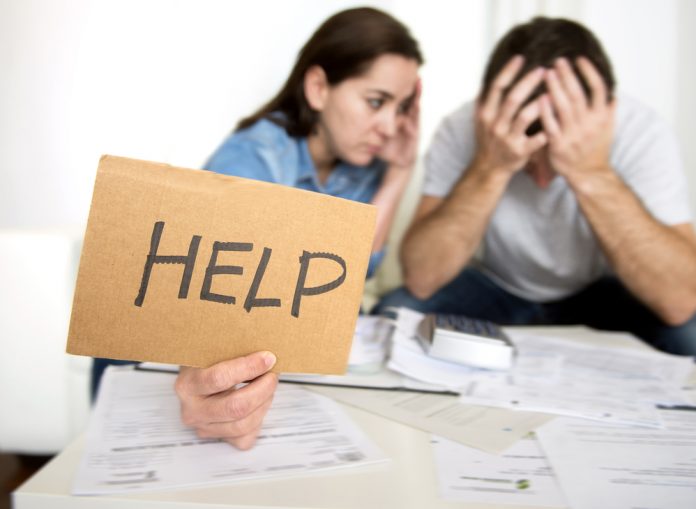When problems arise in a relationship, many couples attempt to work through the difficulty without the help of a counselor or therapist. Initially they may seek advice from friends and family, or read self-help books together or individually in an attempt to get back on track.
These can be effective methods for resolving marriage or relationship problems. However, in some situations self-help is not enough; counseling may be required when one or both partners feel that progress is either not taking place or it is too slow. Initially go for free couples counseling.
When to seek free couples counseling
According to Toronto based psychotherapist, Stephen Giles, MSW RSW, there are numerous reasons husband and wife seeks free couples counseling. Below is short list of situations where it may make sense to pursue marriage counseling.
There has been infidelity or betrayal.
The hurt is so painful one or both partners cannot face the problem.
It seems like the same problems happen over and over gain.
One or both partners are unable to make important decisions.
One or both partners no longer feel close and don’t know what to do.
One partner is withdrawn and cold – but will not talk about why.
One partner is angry and bitter and will not give the other partner any space.
One or both partners are unable to resolve longstanding problems.
On or both partners are unable to find time to talk.
One or both partners are having problems with alcohol or drug use.
Ten Talking Points for a Healthy Relationship
Stephen Giles developed the following ten talking points in order to allow couples to assess how they feel about their marriage or relationship. If both partners can discuss these issues in an open and honest way and feel positive after talking about them, they have the building blocks for a lasting relationship.
If, on the other hand, one or both partners feel that talking about these topics is too difficult for the relationship to withstand – or when talking about them is too uncomfortable – then marriage or couples counseling may be beneficial.
Both partners feel safe, secure and connected in the relationship.
Shared values outnumber those not shared.
Both partners have a shared method for solving conflicts that respects both parties.
Problems in relationship are shared: i.e. not always one person’s fault.
Language and behavior is respectful of each other and others.
Both partners can switch roles to solve different problems.
The work to run the relationship and household (and family) are divided fairly.
The relationship is supporting both partners’ short and long-term goals.
Couple’s sex-life is meaningful.
Both partners take time to nurture and grow the relationship.
According to Giles, counseling can help couples reconnect to each other and learn new ways of communicating so when problems arise in the future, they are equipped with the skills necessary for working them through. For couples or spouses who have decided that their relationship must end, counseling can also help provide an ending that is mutually respectful.
How to choose right counselor
People, if calling for a service such as plumbing or repairs, will usually ask a few questions of the person they call: What are the costs of the service? How old is the company? What are the hours of operation?. Some people even go so far as to check with the Better Business Bureau or other websites to see if there have been any complaints lodged against the business or owner.
Yet when seeking a counselor, many people simply call and make an appointment. No questions. No inquiries about complaints – nothing!
Counselors, however, are going to ask lots of questions and lots of personal questions. Some of these will be asked on forms that must be completed prior to a session. Others will be asked during the initial intake session as well as subsequent appointments or sessions.
The relationship between clients and counselors is essential in order for counseling to be successful. Clients are asked to be open and honest about their feelings, experiences and thoughts. Counselors reflect back to the clients what they are seeing or hearing, and it is this intricate back and forth exchange that enables clients to feel heard and valued, and counselors to know how to best help the people before them.
Interview the counselor
Before people take the help of free couples counseling it is a good to take time and think about a few questions to ask them. Counselors want clients to feel comfortable with them and are very open to being asked a variety of questions related to their professional qualifications and approaches to doing counseling.
Ask about how long someone has been a counselor and their experience or expertise? Ask about availability and costs? Ask about billing the insurance company or accepting insurance? Ask about their degrees, current licenses, and how they deal with confidential records and materials? Also ask about their approach to various issues that may be discussed?
This interview does more than just provide information. It gives people a sense of how open the counselors are. It gives a sense of how well counselors communicate and how comfortable they are talking about themselves. If rapport can be established during a phone call it is likely to be even better in person.
Credentials & Complaints
All licensed professionals have a department or agency that oversees their license requirements and current status, including any outstanding or unresolved complaints against them. This is public information and easily found on the website of the licensing agency or department. Before setting an appointment potential clients can easily check out the counselors they are considering seeing.
The investigative process might be set aside if people are in crisis and in need of immediate care or intervention. In those situations it is most important to find counselors quickly and get the details later once the crisis has passed.
Counselors have been trained to help people with a myriad of issues, but training is only part of the solution. Counselors and clients must work together and that involves building trust and rapport. Clients who are looking for help should be ready to do more than just make an appointment.





